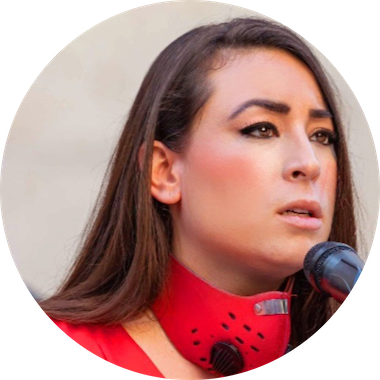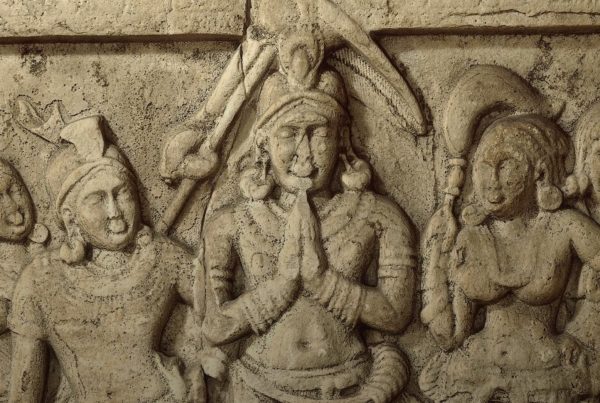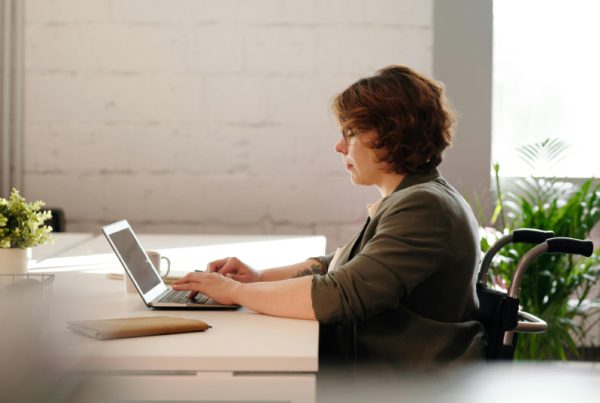As the new year begins, many people are setting goals and resolutions to improve their lives. For some women, this means refocusing on their own dreams and aspirations. But for others, the start of a new year only brings added pressure and self-doubt.
Why is it that some women are so hard on themselves?
“Even at your lowest moments, you still need to move forward,” encourages Jánelle Marina Méndez Viera, who endured multiple adversities throughout her childhood and early adulthood. She is now passionate about helping other women overcome challenges.
“Maybe you’ve been told not to go for that risky job, or you’re afraid to relocate for your career because you’re a mom. It’s ok to be scared while you’re trying to figure something out. We all have moments when we don’t feel safe and comfortable. Risk taking throws you out of your comfort zone. As long as you’re not in danger, that discomfort will be part of your growth.”
Méndez Viera turned her adversities into her life’s mission
Méndez Viera endured many obstacles as a child and young adult, including multiple forms of sexual violence and modern slavery, some of which happened while she served in the military.
Now in her early 30s, she is using those negative experiences to fuel positive changes. She has lobbied for and achieved changes in nearly every level of government. She is an author, academic researcher, human rights activist, entrepreneur and public speaker. “This journey has cultivated a resilience and determination within me that I hope to use to inspire others,” she says.

Méndez Viera says you, too, can overcome anything. Here’s what kept her going:
For women who are struggling right now, she suggests taking some of the same steps she followed.
1. Believe in yourself and don’t give up
“No one knows your strength and capabilities better than you. Remain assured in your abilities and potential, despite any negative voices around or within you. Read the stories of people who’ve come before you and overcame similar adversities. This is extremely helpful during moments of doubt and can provide reassurance when things are looking dim.”
Méndez Viera found role models in confident women, some of whom paved the way for her own technological and human rights achievements. “In the 1940s, Hedy Lamarr invented the ‘frequency hopping’ technology that became Bluetooth. Eleanor Roosevelt was instrumental in founding the United Nations. On a personal level, I had an aunt whose unconditional love and support inspired me to be a more compassionate person. And even though my own family was dysfunctional, I had friends who taught me how to have healthy relationships.”
2. Take time for self-care
“Healing emotionally and physically is integral to personal development. For me, this meant regular exercise, meditation, therapy and ensuring a healthy lifestyle. Find your go-to self-care activities and make them a regular part of your routine, especially during the points that you want to give up.”
3. Reach out for help
“It can be tempting to isolate oneself in difficult times, but I’ve found that reaching out to support groups, psychologists and networks of individuals who have faced similar experiences can be very helpful.”
4. Become an ambassador of change
“Activism provided me with a sense of purpose and passion. Use your experience to influence changes that can help others with similar struggles so that you are empowering others and making their journeys less painful and more about healing.”
5. Never stop learning
“Continual growth and education served as a beacon of light in my darkest times. As an author and inventor, I found solace, purpose, and game-changing dynamism in the pursuit of knowledge and innovation. Resources like PTSD support groups, the Veterans Administration, counseling sessions, and various online platforms such as Veterans Crisis Line can be of immense help during troubled times.
“For me, reading research reports regarding various social sciences helped me understand the societal problems that caused my trauma. They empowered me to take meaningful actions for advocacy that led to me authoring the Restoration of Honor Act of 2019.”
She emphasizes, “Sometimes obstacles can be opportunities to learn more about yourself, and to create a better path for your life. You can learn to thrive even during hard times.”
About the author

Born in Bronxville, New York, Jánelle Marina Méndez Viera is a highly accomplished and dedicated professional, with a wealth of experience in the field of human rights. She is a Puerto Rican American Certified Human Rights Consultant, CEO of both Liberty Leaf AI and the Military Sexual Trauma Movement, feminist human rights defender, interdisciplinary social scientific autodidact theoretic researcher and smart money inventor. She has made a significant impact in the areas of military and veterans’ rights.
Her impressive achievements include authoring and successfully lobbying for the passage of the Restoration of Honor Act of 2012, the first-ever intersectional legislation for military and veterans in U.S. history. She also succeeded in lobbying for the establishment of the Independent Review Commission on Sexual Assault in the Military.
You may enjoy reading about Improving health & exercise here.




